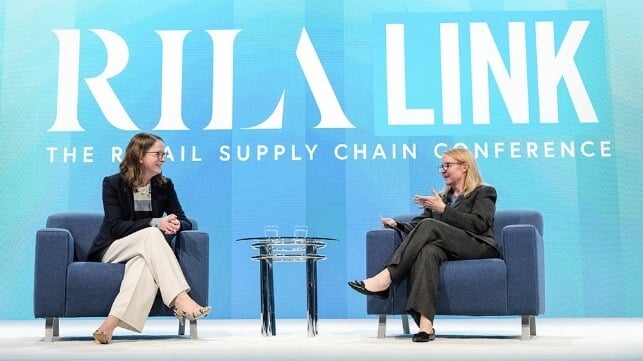Retailers Turn to AI for Precision Forecasting Amid Supply Chain Challenges

In a rapidly evolving retail environment, artificial intelligence (AI) is emerging as a critical tool for executives seeking to navigate shifting consumer behaviors and increasingly complex supply chains. As traditional forecasting models falter in the face of new market realities, industry leaders are embracing AI-driven predictive analytics to gain a competitive edge.
The use of AI to optimize supply chains is a top focus of the upcoming LINK 2026: The Retail Supply Chain Conference, a gathering of the nation’s top retailers and solution providers. The conference will delve deeply into several AI-related topics, including how top retailers are reworking the approach to demand planning during this tumultuous time for trade.
For decades, retailers relied on forecasting methods rooted in historical averages and static assumptions. These models, while useful in stable conditions, have proven inadequate as consumer preferences change and external disruptions, such as global pandemics, extreme weather events, and geopolitical tensions, become more frequent. The limitations of shipment-based and manual forecasting have prompted a strategic pivot toward AI-powered solutions.
AI-driven forecasting systems leverage vast amounts of internal and external data, including sales trends, seasonal fluctuations, promotional calendars, weather forecasts, economic indicators, and even social media sentiment. Unlike traditional models, these systems continuously learn and adapt, refining their predictions as new information becomes available. The result is a level of precision that allows retailers to optimize inventory, reduce waste, and improve operational efficiency at both the store and distribution center levels.
.jpg)
Empowering Executives with Granular Insights
For retail executives, the adoption of AI is more than a technological upgrade, it is a strategic imperative. By moving beyond shipment-based models, leaders gain granular visibility into demand fluctuations across regions and channels. This enables smarter inventory deployment and replenishment decisions, minimizing costly stockouts and overstocks while enhancing customer satisfaction.
AI also helps retailers identify emerging trends early, allowing them to respond proactively rather than reactively. For example, machine learning algorithms can detect subtle shifts in consumer preferences or anticipate the impact of upcoming events, such as holidays or major sporting competitions, on product demand. This foresight empowers executives to adjust inventory levels and marketing strategies in real time.
Navigating Supply Chain Disruptions with Scenario Planning
One of the most significant advantages of AI in retail forecasting is its ability to simulate multiple scenarios. In an era marked by near-constant supply chain disruptions, machine learning models can help executives plan for a range of contingencies. Whether adjusting inventory ahead of a major event or reallocating resources during a supply chain hiccup, AI provides the agility retailers need to thrive amid uncertainty.
“AI gives us the ability to plan for the unexpected,” said a supply chain executive at a leading national retailer. “We can model different scenarios and make data-informed decisions with greater confidence, which is invaluable in today’s environment.”
Supporting Sustainability and Strategic Growth
The benefits of precision forecasting extend beyond the bottom line. By reducing excess inventory and waste, AI supports retailers’ sustainability goals. It also frees up teams from manual forecasting tasks, allowing them to focus on strategic initiatives that drive growth and innovation.
As AI and machine learning become “table stakes” in retail forecasting, companies are exploring next-level agentic AI applications to further increase responsiveness and flexibility. These advanced systems can autonomously adjust forecasts and inventory plans, responding instantly to new data and market signals.
Industry Spotlight: LINK 2026 Conference
The transformation underway in retail forecasting will be a central topic at the upcoming LINK 2026 conference, hosted by the Retail Industry Leaders Association (RILA). The event will feature peer-led Tabletalk discussions and retailer-led breakout sessions, including a presentation on how Dollar General implemented its own AI-powered forecasting system to enhance operational performance. Industry experts and executives will share best practices and insights on harnessing AI to deliver the right product, at the right place, at the right time, every time.
Conclusion
AI-driven forecasting is transforming retail from a reactive to a predictive industry. For executives committed to leading with data, the opportunity is clear: harness AI to make smarter decisions, optimize operations, and deliver superior customer experiences in an increasingly complex world.
This article is sponsored by RILA.
The opinions expressed herein are the author's and not necessarily those of The Maritime Executive.
